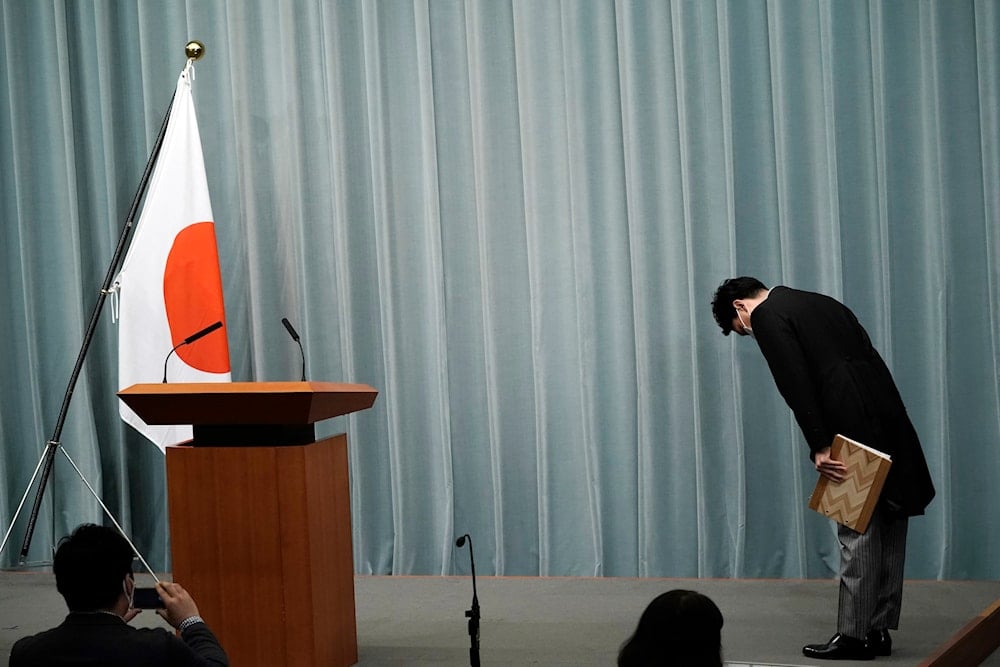Japan's leading PM candidate Koizumi promises snap election
Shinjiro Koizumi, Japan's former environment minister and a frontrunner for the prime ministership, announced on Friday that he would hold a snap election "as soon as possible".
-

Shinjiro Koizumi, Minister of the Environment, bows before speaking during a press conference at the prime minister's official residence on September 17, 2020, in Tokyo. (AP)
On Friday, Japan's former environment minister and leading prime ministerial candidate Shinjiro Koizumi said he would call for a snap election "at the earliest date possible" if he were to win the ruling party's leadership election this month.
Koizumi pledged to "essentially continue" the economic policies of the current Prime Minister Fumio Kishida's administration if he were to become the next prime minister.
During a news conference announcing his intention to run in the race, Koizumi said, "I'll aim to beef up the underlying strength of the Japanese economy so that growth can be attained even in an era where inflation and higher interest rates coexist."
He stated that if he became prime minister, his priority would be to introduce a new economic package to support small businesses and low-income households affected by rising living costs.
Koizumi most favored to become next LDP leader
At 43, Koizumi, the son of former prime minister Junichiro Koizumi, is considered a top contender in the upcoming September 27 race to elect the Liberal Democratic Party's (LDP) new leader, who will automatically assume the role of prime minister due to the party's majority in parliament.
In a poll conducted by the Nikkei newspaper on August 21-22, Koizumi emerged as the most favored candidate to become the next LDP leader, with former defense minister Shigeru Ishiba ranking second.
Last month, Kishida, announced, on August 14, that he would not run for re-election as party leader, signaling his intention to step down. The ruling Liberal Democratic Party, which has largely held power since 1945, is set to hold a leadership contest next month to choose his successor as prime minister.
"In this (party) presidential election, it is necessary to show the people that the LDP is changing and the party is a new LDP," Kishida told reporters in Tokyo, stressing that "For this, transparent and open elections and free and vigorous debate are important. The most obvious first step to show that the LDP will change is for me to step aside."
Kishida, 67, who has served as prime minister since October 2021, has witnessed a steep decline in both his and his party's approval ratings due to rising prices that have strained Japanese incomes. In November, he introduced a 17 trillion yen ($100 billion at the time) stimulus package to alleviate the impact of inflation and salvage his leadership.
However, this move did little to boost his popularity, either among voters in the world's fourth-largest economy or within his party. In addition to inflation—an unfamiliar and unwelcome challenge for Japanese citizens—economic growth has stalled, contracting by 0.7% in the first quarter. Although there has been some recent recovery, the yen remains one of the poorest-performing currencies globally, benefiting exporters but driving up the cost of imports.

 3 Min Read
3 Min Read








